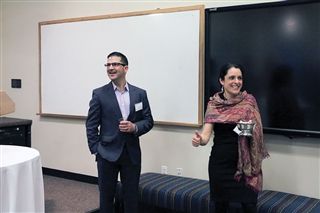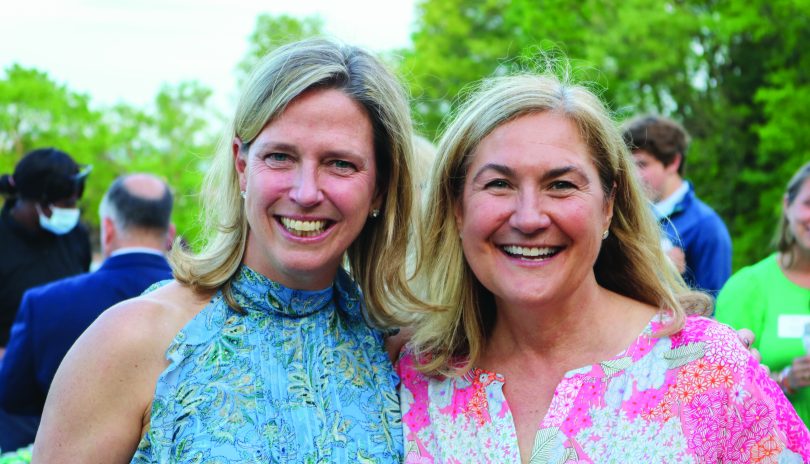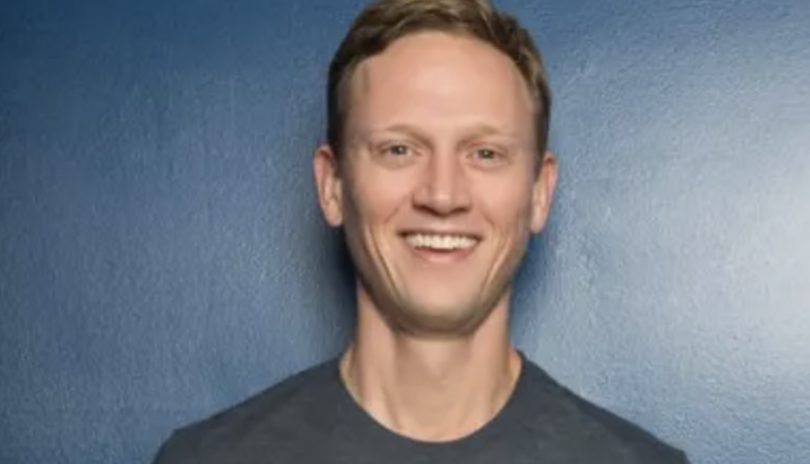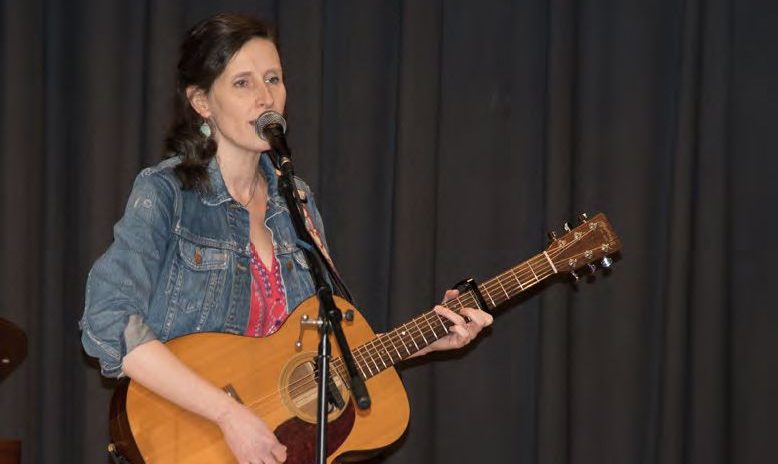Monique Tello ’86, a doctor and medical blogger, combines her dedication to practicing medicine with a lifelong love of writing. She always had a “compulsion” to write, she says. She began keeping a diary, joining writing clubs, and entering contests from a very young age, but never imagined she’d become a doctor.
Her father was an “old-fashioned” doctor, who saw patients in their home in a solo practice. Despite his example, she never thought of medicine as a career for herself.
The trajectory of her life changed when as a student in the Dedham school system, she saw how budget cuts forced the closure of three schools and the consolidation of classrooms in others. “The school system was experiencing massive cuts, classes were being consolidated, and I ended up in a 5th grade class with 45 students. There was no library in the school. It was a terrible situation.”
Her next-door neighbor was Lee Mumford Peterson ’86, so her parents looked into sending her to DCD. “My parents transferred me to DCD, and it was a completely different world.”
“I was one of the lucky ones whose parents could afford a private education. It was an amazing education. The academics were just far and away fantastic compared with anything I had experienced before, and I actually did okay, considering what a big leap it was. The teachers at DCD definitely helped with the transition. I didn’t fall behind or get lost academically.”
“I never would have been able to get into Newton Country Day School, which is the high school I went to, if I hadn’t gone to DCD. I wouldn’t have gotten into Brown either. Academically, DCD was rigorous, but there were really excellent teachers and really charismatic folks teaching there. Mr. Jackson was one of my favorites.”
It was at Brown University that Monique became interested in medicine. “The idea got into my head that I could do it. Before that point, I thought I couldn’t do it, because I was a girl, but with a great education, lots of role models, before I knew it, I was signing up for pre-med.”
When it came time to apply to medical school, her dean wouldn’t write her a letter of recommendation, saying her grades weren’t good enough. “I was devastated, I cried, but I thought, ‘I am going to show him,’ and I did.” After graduating from Brown, she went to night school at the University of Pennsylvania taking pre-med classes. She worked during the day and took classes at night, enough to get her GPA up to apply.
“It took a year, it was the hardest thing I’ve ever done, harder than med school. Again I was very lucky because my parents footed the bill for the courses, and I paid the rent. My job was to ace the courses.” Her efforts paid off because at the end of the year, the dean wrote her the letter of recommendation that she needed to get into med school. “I did it, got in, and I’ve been very happy.”
After med school and four years of residency, she had developed a strong interest in international health and infectious diseases, but she was still uncertain which she wanted to pursue. She took a research fellowship at Johns Hopkins in Baltimore, hoping it would help her to make that decision.
“Baltimore is a tough town, similar to a lot of developing countries,” she said. She worked in a women’s HIV clinic, treating a population of sex workers with a much higher incidence of irregular pap smears and STDs than the average population. “I did counseling that involved lots of tough conversations.” There she became involved in HIV research.
She credits Richard Selzer and Sherwin Nuland, both well known in the doctor-writer world (both published books that are must-reads for pre-med students) for mentoring her during her residency at Yale and for encouraging her to combine her medical training with a love of writing.
“When I was in residency at Yale—a brutal time when you can barely sleep or eat—Richard Selzer would host gatherings once a month to talk about writing, and I would do whatever I could to make sure I made it there. Sherwin Nuland, who wrote How We Die, and I were on on a mission trip together to Sri Lanka after the 2004 tsunami and spent lots of time on the long plane trip discussing writing.”
Over the years, she continued to make contacts in the writing world, attending writing conferences, knowing she would eventually do something in the field, and observed the publishing world opening up.
“Today, you can blog. People used to have to really work to get published, but now you can get a WordPress account and blog, tweeting it out, building a little audience, and that’s what I’ve been doing over time.”
She writes now for the Harvard Health publications blog, in addition to being a primary care provider at Women’s Health Associates, a practice of women for women at Mass General, and a clinical instructor at Harvard Medical School.
“They need doctor-writers who can write about research in a way that people can understand. It’s like translating. I know research, I know how to translate it, and I know how to write. It keeps me in the research world, so I can keep up with research and my name is out there.”
Her family life remains rich and rewarding. Monique is married to sports announcer Bob Socci and is the mother of two children, a son, Gio, short for Giordano, and a daughter, Maria Gracela. One of her recent blog posts focused on what’s been happening in Washington, in particular, discussing a photograph of a room full of men making major decisions about women’s health without a single woman present.
“To me that really struck a chord. I started thinking about my daughter’s future. I hope she’s a leader one day. I took her to the women’s march. She was my little buddy. With our signs and pink hats, we were a feminist duo. I think about her future a lot.”
Monique’s father is from Guatemala. She speaks Spanish and is very close to family there. “The kids hear a lot of Spanish. I try to get down there at least once a year. I’ve taken my daughter there three times.”
In her days at DCD, when the student body wasn’t as diverse as it is today, she didn’t always find it easy. She laughs about it now. She says it was just one of many experiences in life that made her more determined, and partly where she got the attitude, “well, I’ll show you,” and indeed, she has done just that.
Click here to read Monique’s blog, generallymedicine.com.







